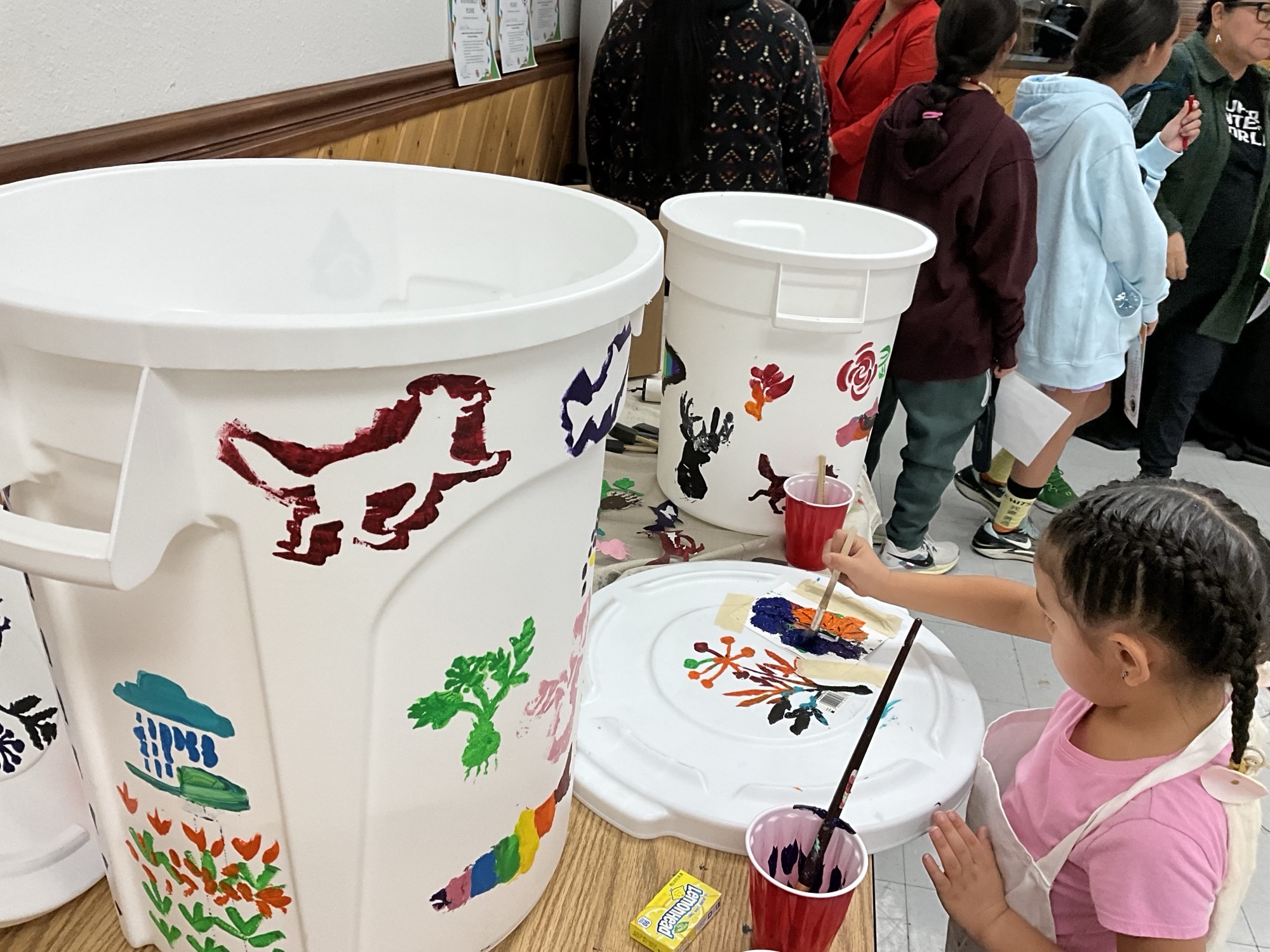
A Tribal youth participant at the NYE Sobriety Powwow helps decorate project food waste collection bins (Dec 2024).
Community Capacity
“Capacity” within this project is loosely defined as the labor, knowledge, resources, and time available to a person or community to accomplish a goal. Our Tribal community often has a need for capacity to implement the vision and practices that our people want to see accomplished. Our community is filled with passionate, creative and innovative people, but with time and energy going to meeting day-to-day needs, we have a need to increase capacity in ways that will lead to lasting change.
Thus this project aims to directly address our community’s capacity to better understand and manage our resources, focusing on community and government services where they converge: at the Nixyaawii Community.
Community Events
As part of our project, we will be hosting a variety of events for the Tribal and regional community to learn more about their role in food waste and materials management. November and December 2024 were busy months for us, below are some of the events we hosted or participated with as a project team.
2024 Elders Luncheon
Due to losses in the community, the annual Elders Luncheon for 2024 was postponed until Jan 3rd 2025, and the Nixyaawii, Don’t Throw It Away! Project was glad to be there to celebrate the new year with our Elders! Thank you to everyone who took our Longhouse Sustainability Pledge and took away some of our new reusable cutlery sets.
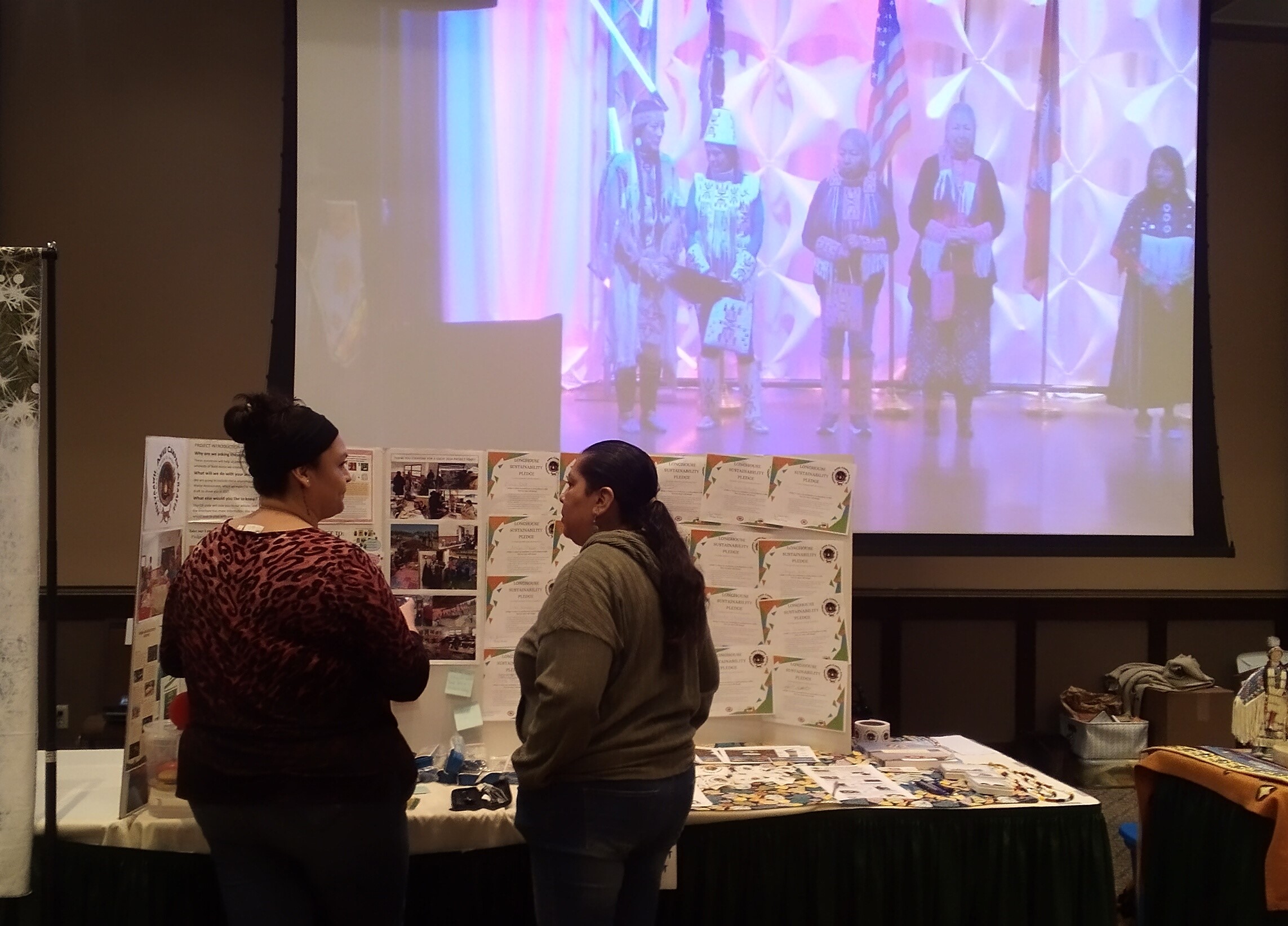
DeArcie Abraham with Biowaste Technology (left) talks with an attendee of the Elders Luncheon about the Longhouse Sustainability Pledge and project activities (Jan 2025).
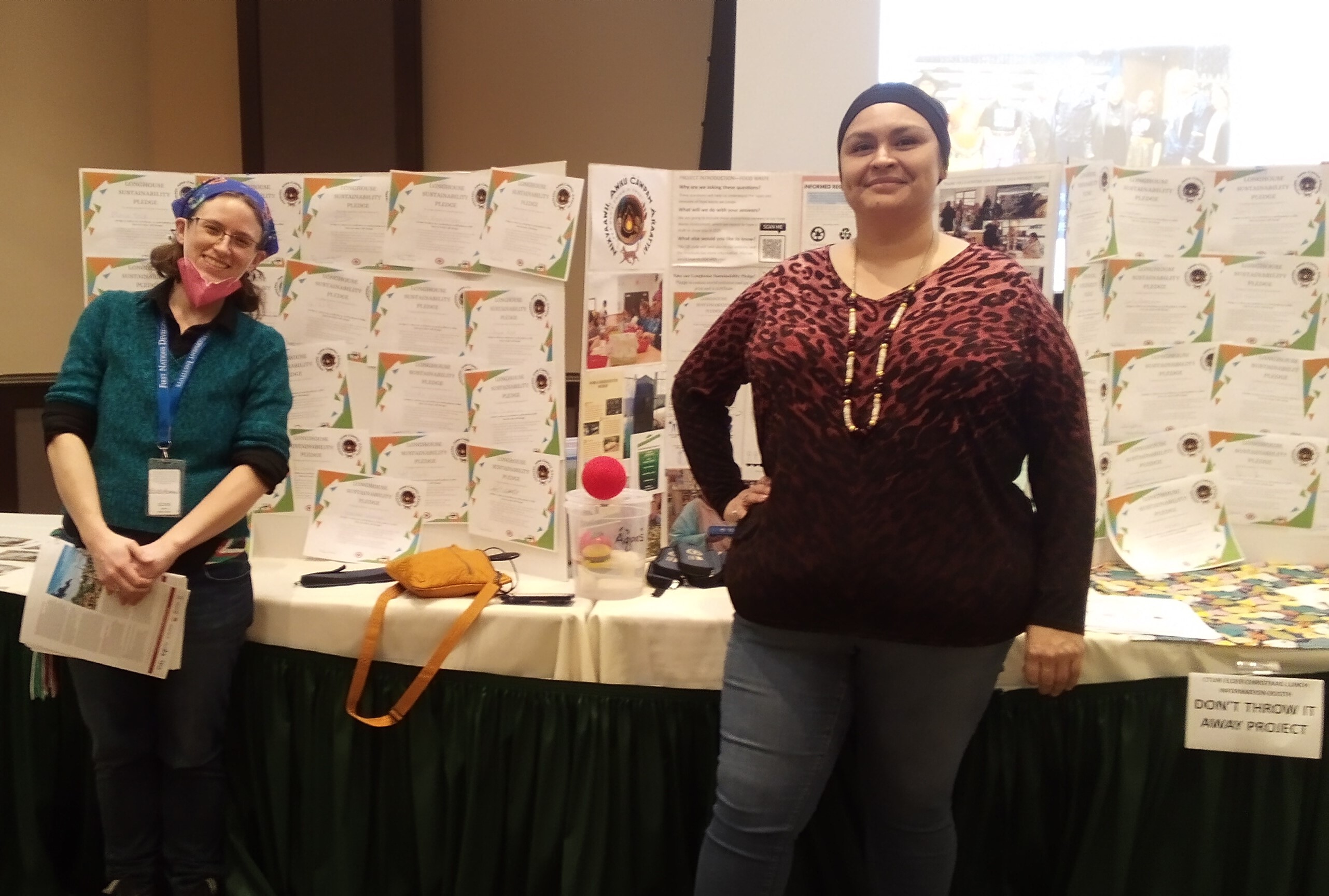
Colleen Sanders (left) with CTUIR DNR FFPP and DeArcie Abraham (right) of Biowaste Technology collected Longhouse Sustainability Pledges and gave out reusable cutlery at the 2024 Elders Lunch (Jan 2025).
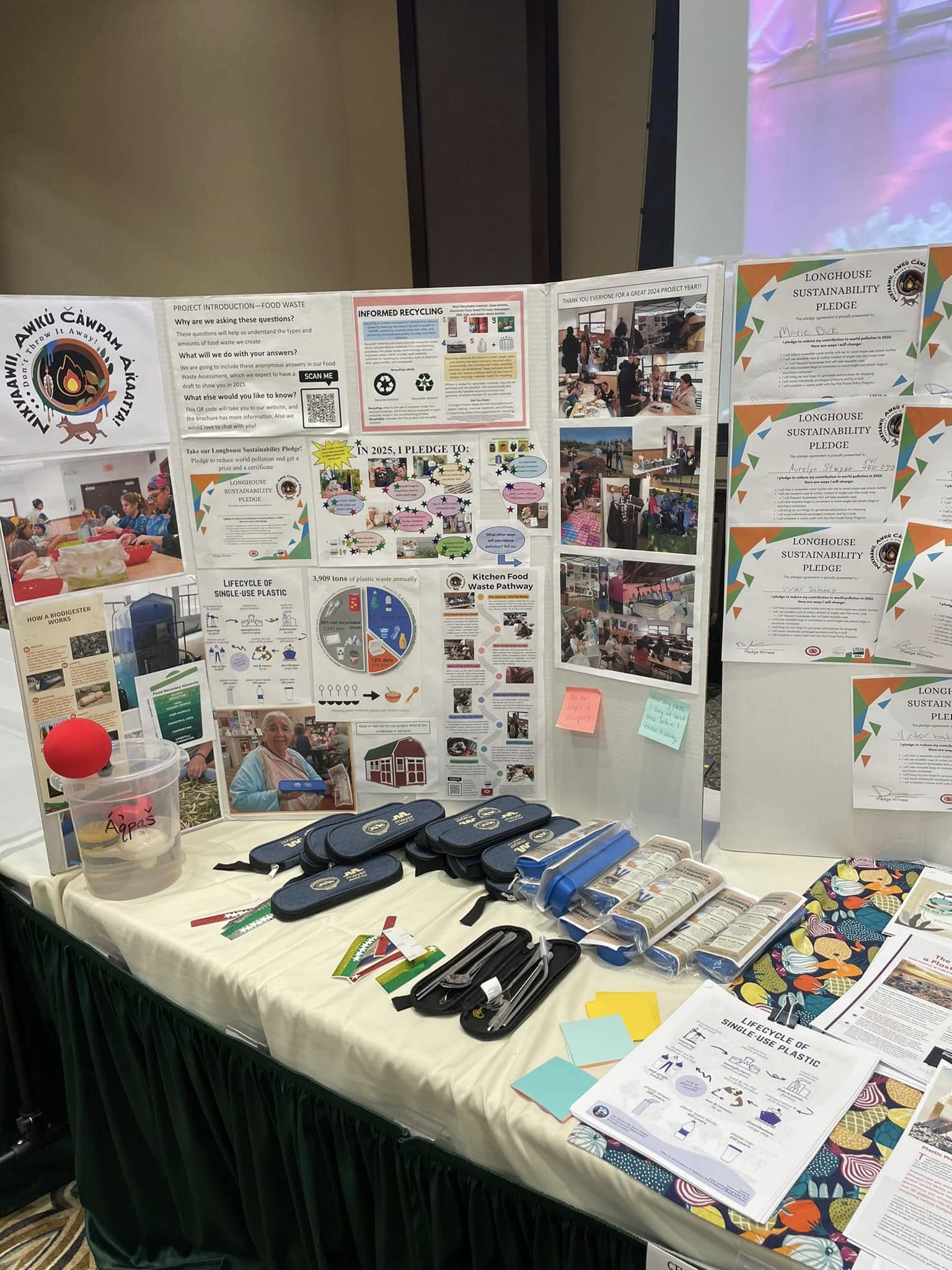
Yellowhawk New Years Eve 2024 Sobriety Powwow
We were thrilled to join our community at the NYE Sobriety Powwow, where we decorated our food waste collection bins! First Foods stencils were provided for those that wanted some inspiration, and other creative participants were brave to make their own works of art. These bins will live around the Nixyaawii community at different facilities, thank you everyone who helped us make our bins beautiful!
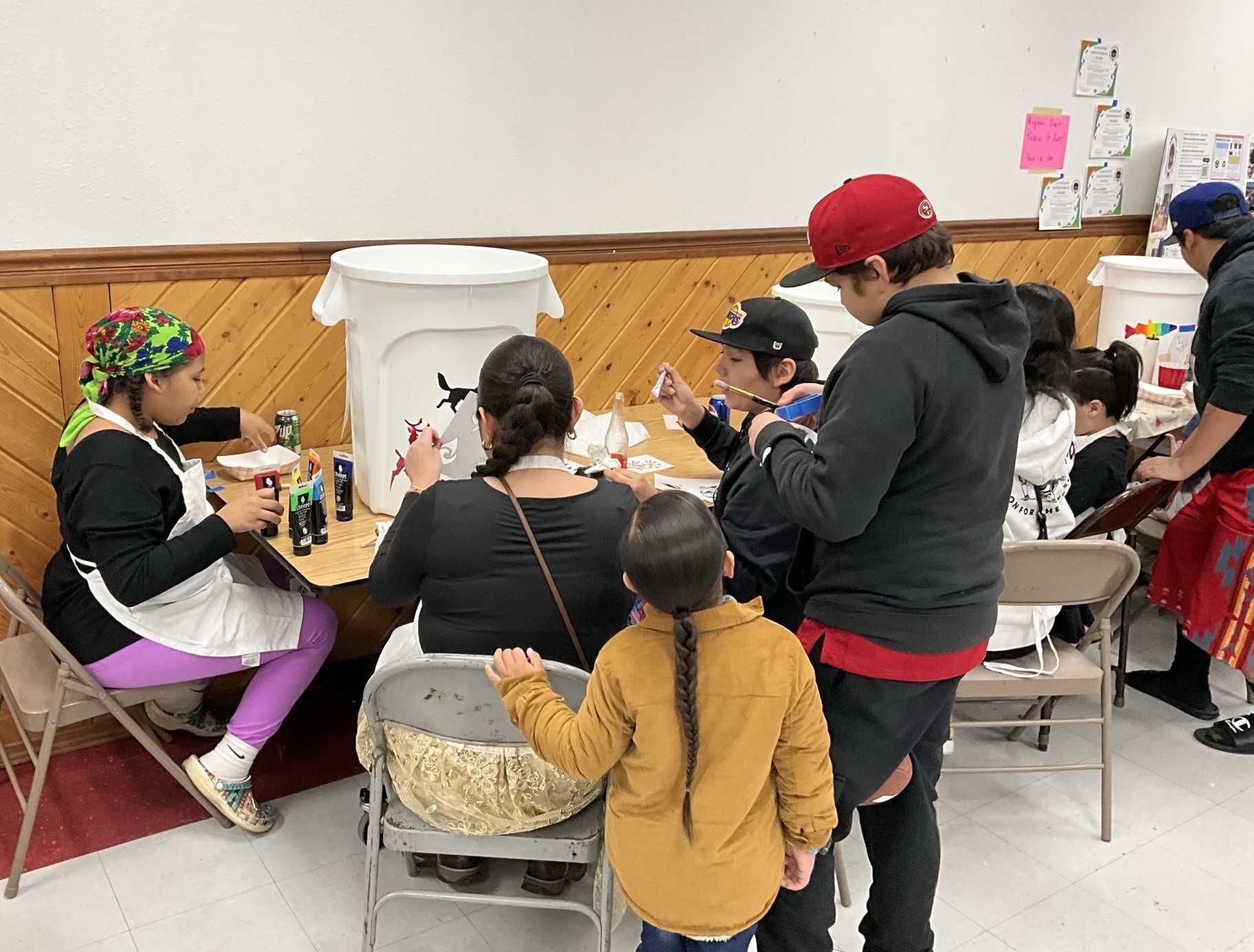
Participants at the Yellowhawk NYE Sobriety Powwow check the NDTIA!P booth off their event bingo card by helping us make our food collection bins beautiful through painting them. Thank you to Yellowhawk for hosting this great event and to everyone who helped make our project bins gorgeous! (Dec 2024)
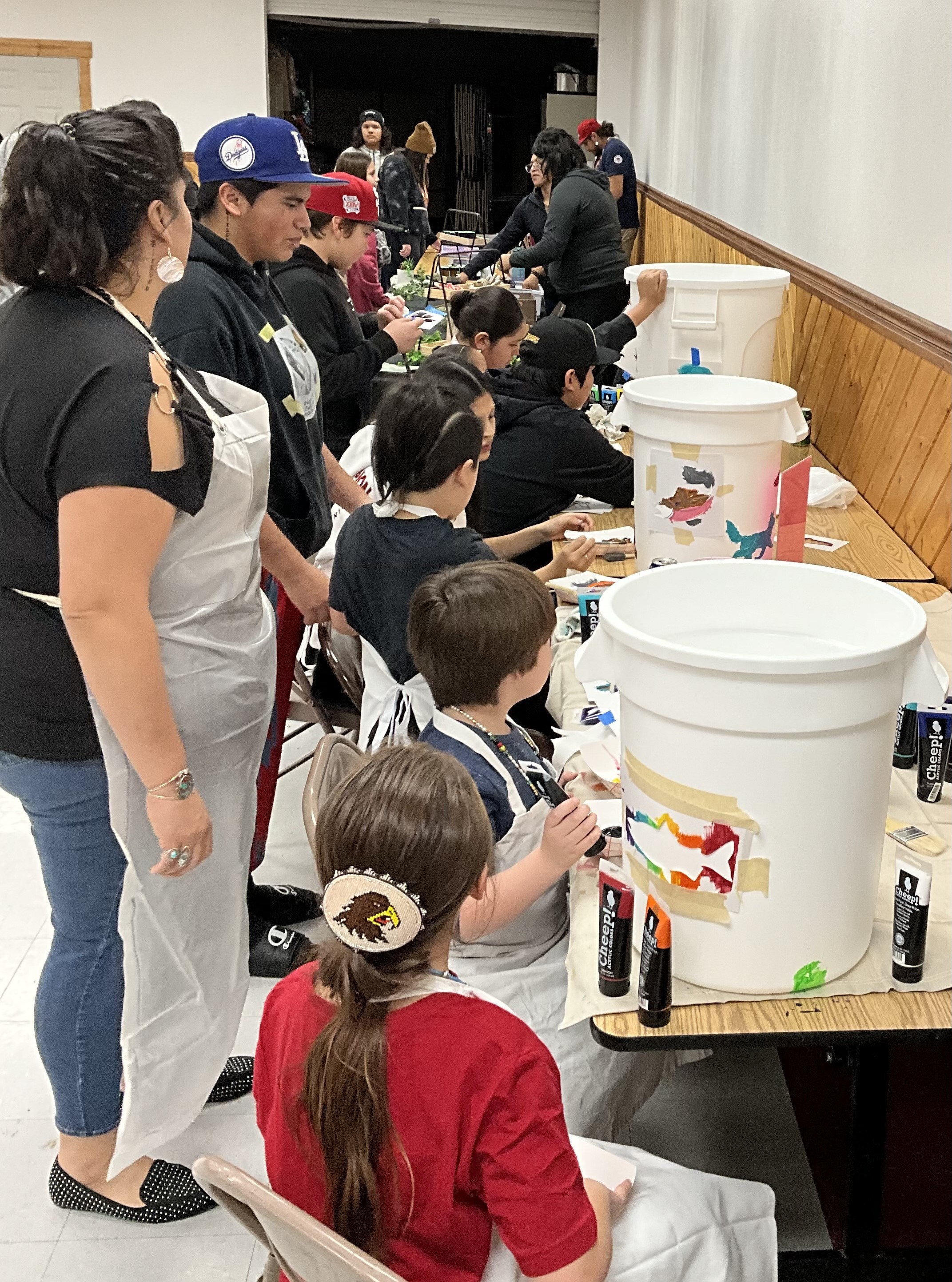
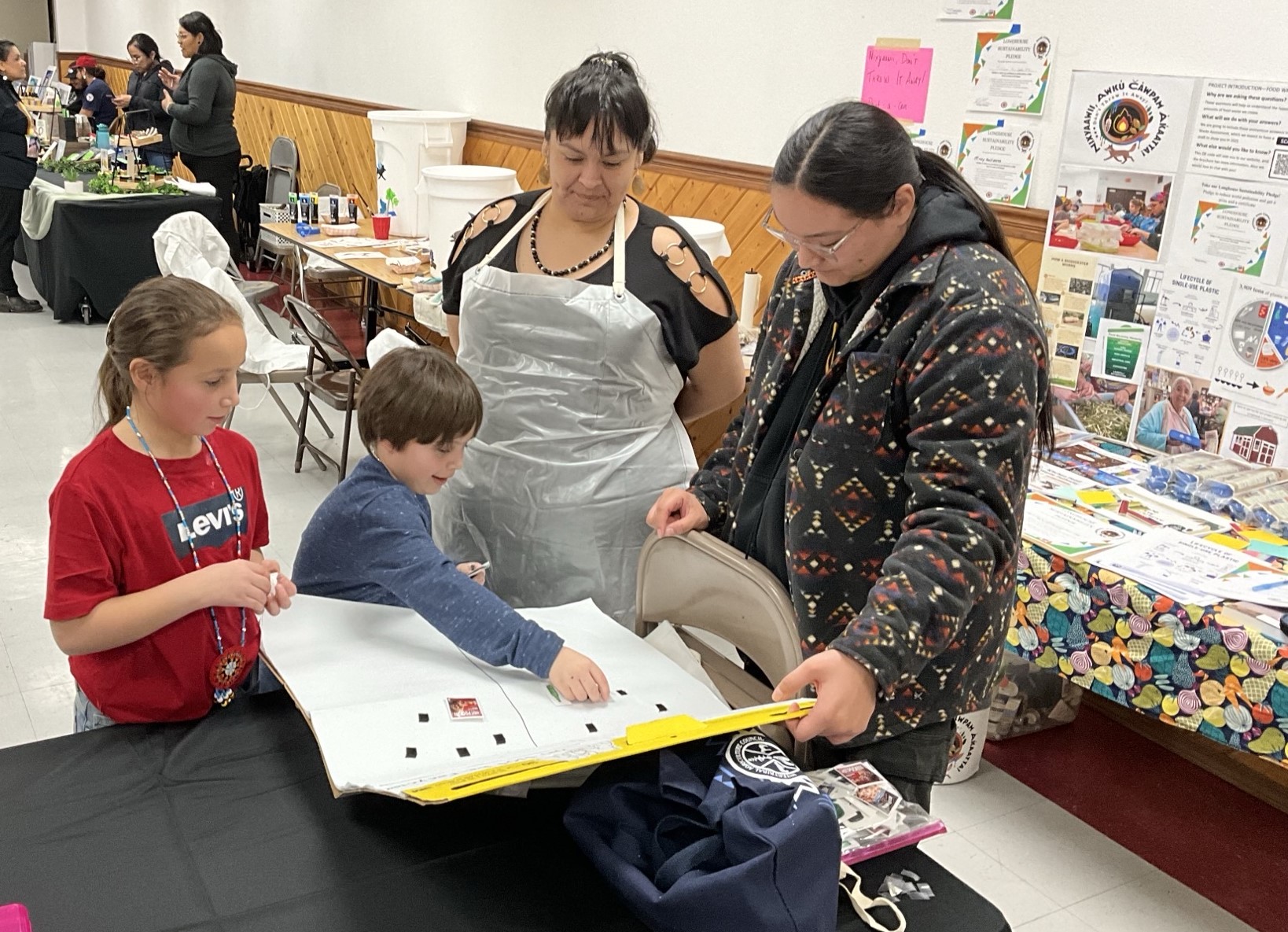
Project team Ermia Butler (Climate Intern with CTUIR DNR FFPP) and DeArcie Abraham (Biowaste Technology) guide Tribal youth participants at the NYE Sobriety Powwow in the Informed Recycling activity to fulfill their event bingo card (Dec 2024).
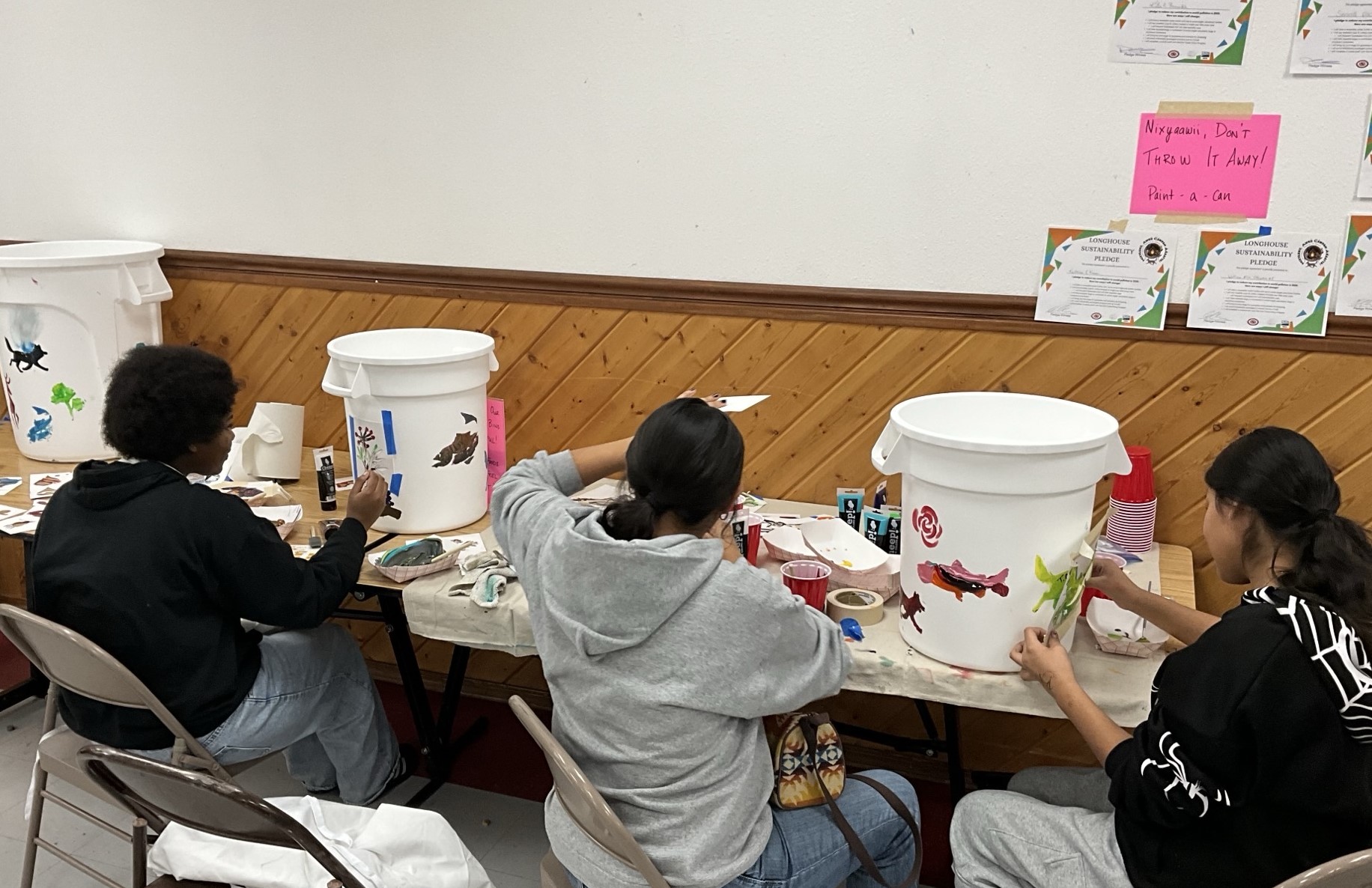
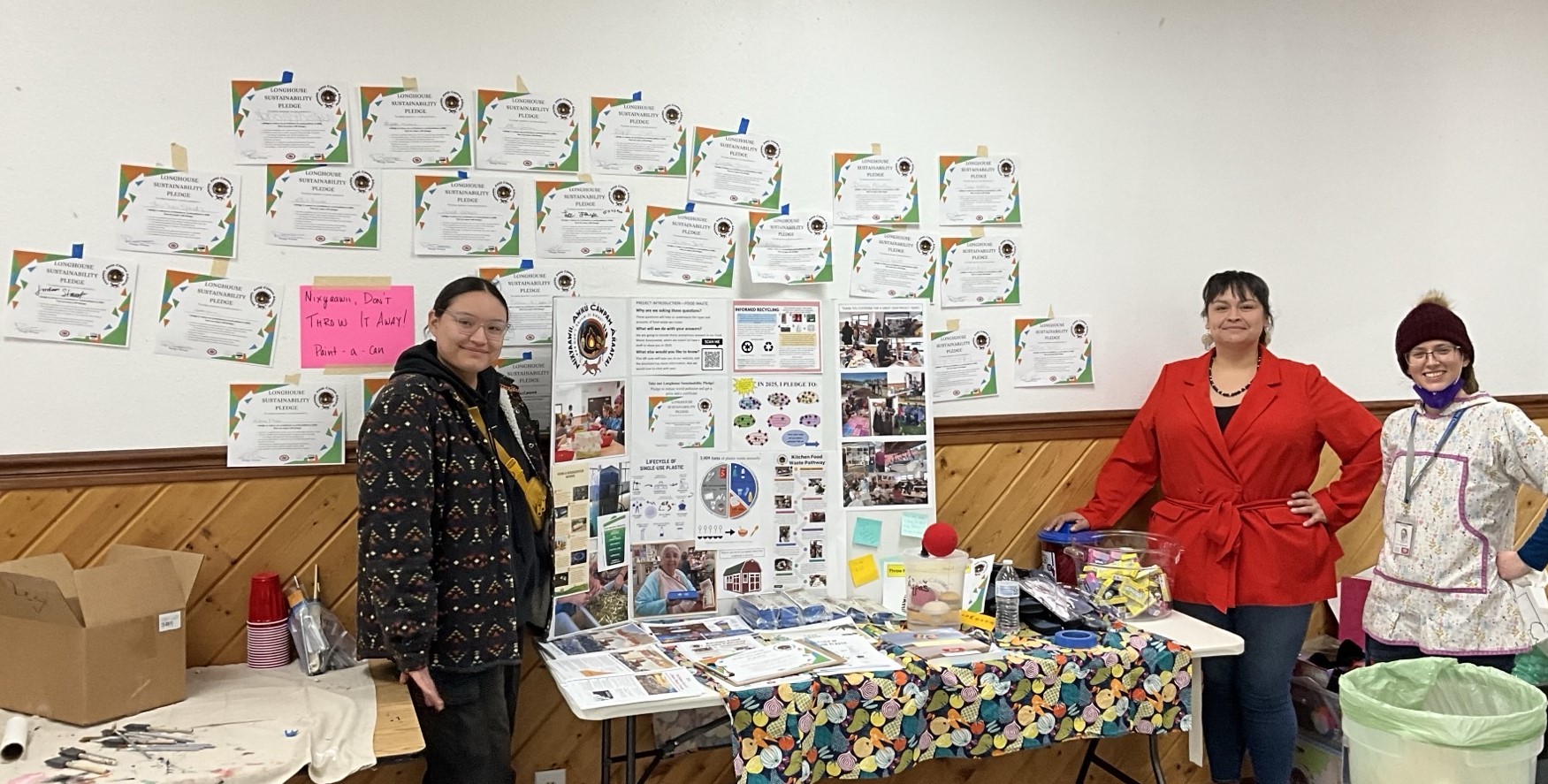
Project team members from left to right: Ermia Butler (Climate Change Intern, CTUIR DNR FFPP), DeArcie Abraham (Biowaste Technology), and Colleen Sanders (Climate Adaptation Planner, CTUIR DNR FFPP) at the Yellowhawk NYE Sobriety Powwow with the Longhouse Sustainability Pledges (Dec 2024).
DCFS Family Engagement Culture Nights
We are excited to be working closely with the amazing team at the Family Engagement Program with CTUIR's Dept of Child and Family Services to be a regular presence at their Wednesday Culture Nights! Our project plans to be at Culture Nights to offer an opportunity for families to engage with and learn more about project activities and outcomes, collect food waste to be used in the Aqpas, and to generate data points to be used in our Food Waste Assessment. Thank you to everyone who has contributed their attention, enthusiasm, time, effort, and patience with us as part of these events!
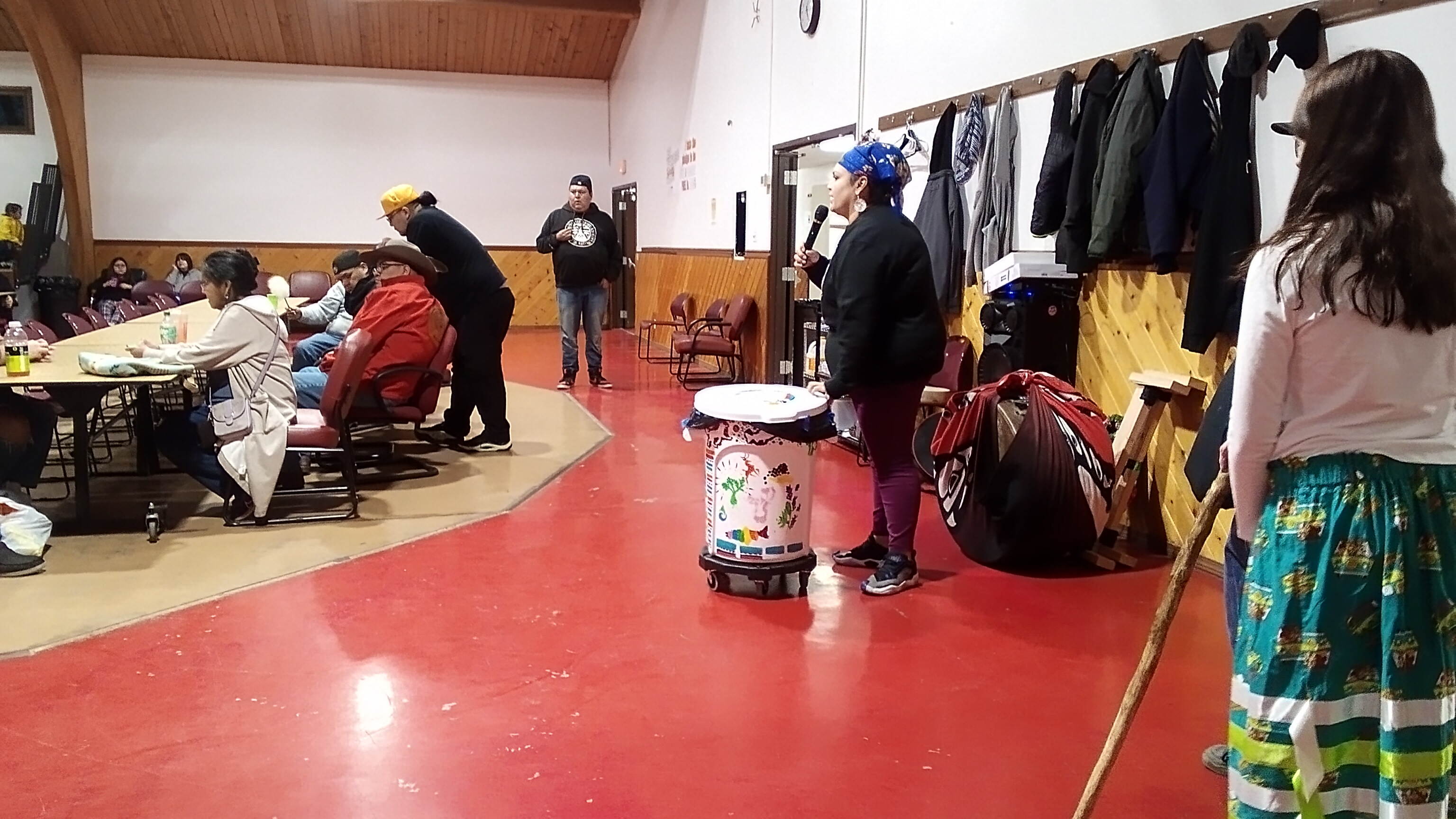
DeArcie Abraham with Biowaste Technology addresses participants of the Jan 8th Culture Night Powwow celebration to inform them of the food waste collection bin that our project has provided to the Longhouse. This bin has been painted with First Foods by the Tribal community as an activity at the Yellowhawk New Years Eve 2024 Sobriety Powwow.
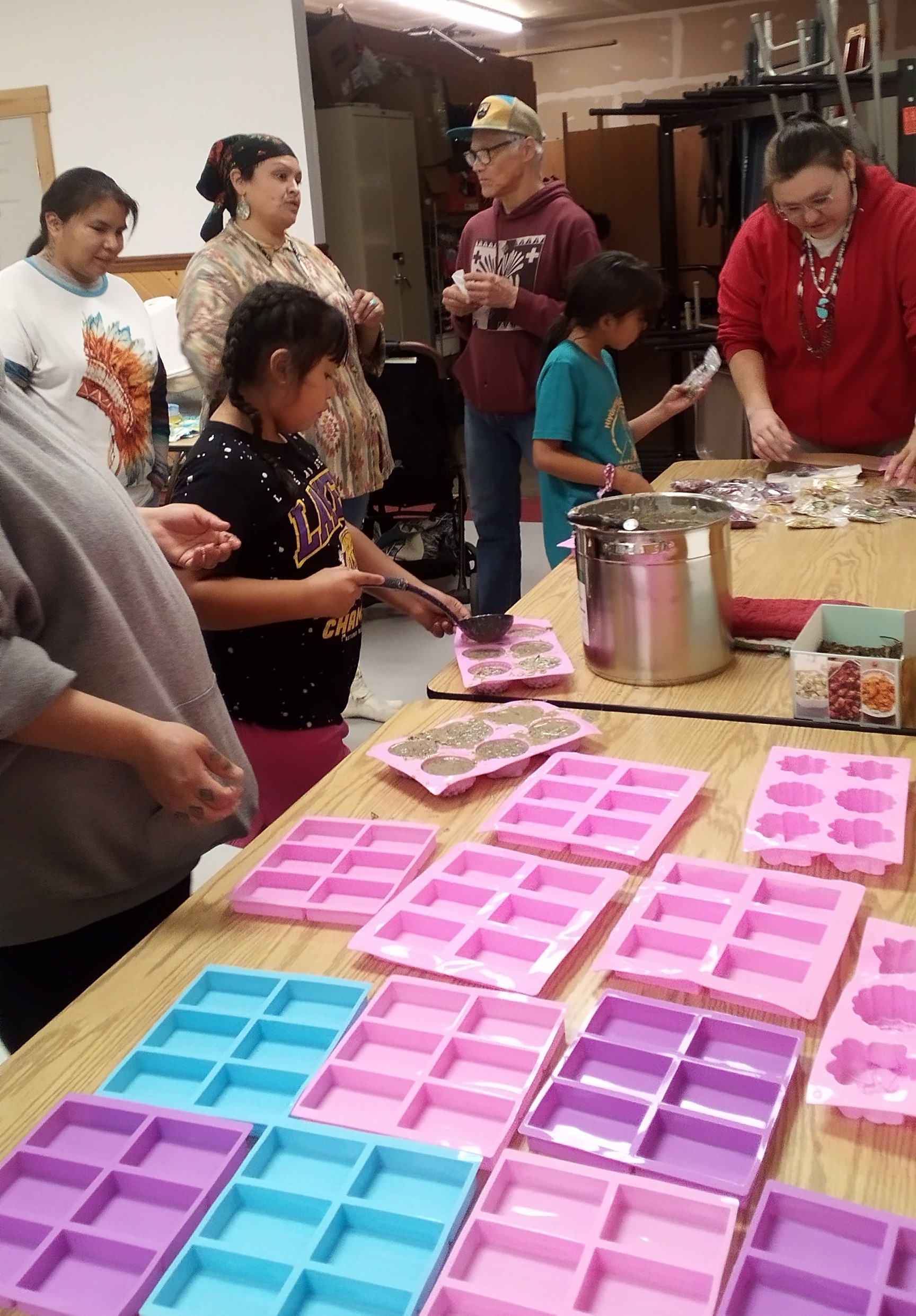
DeArcie Abraham with Biowaste Technology explains the process of ladling out the soap base into the molds to dry. This activity was part of our Nov 6th 2024 Culture Night and participants made xawsxaws soap to take home. Thanks to Biowaste Technology and Amazon Change X for the soap materials!
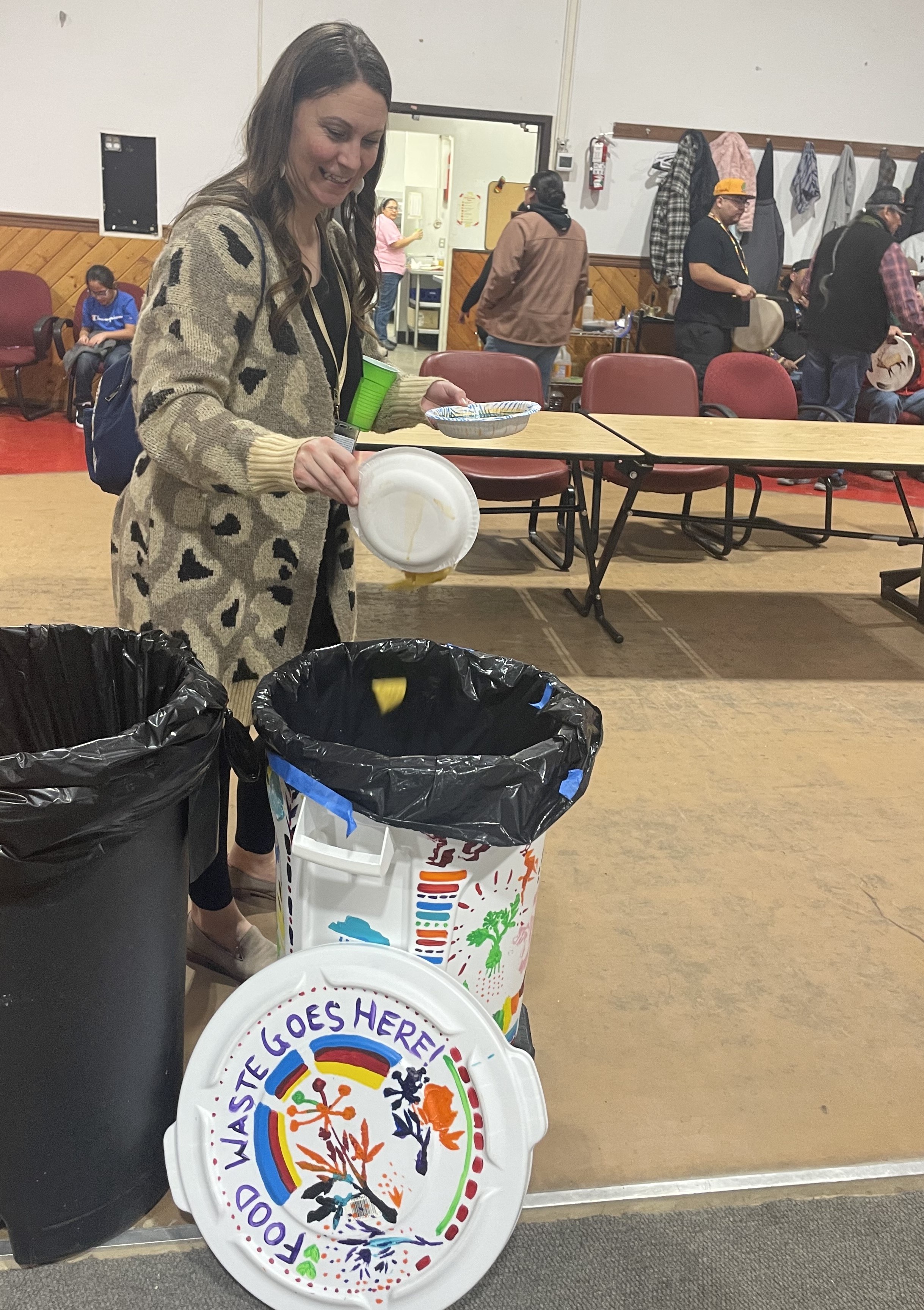
Preventing food waste from going into landfills is something we will all have a role in making happen. We know this is a change from how things are currently done, but we hope our community will see the benefit of making this small change for big improvements in our food and energy system, and especially in our connection to First Foods.
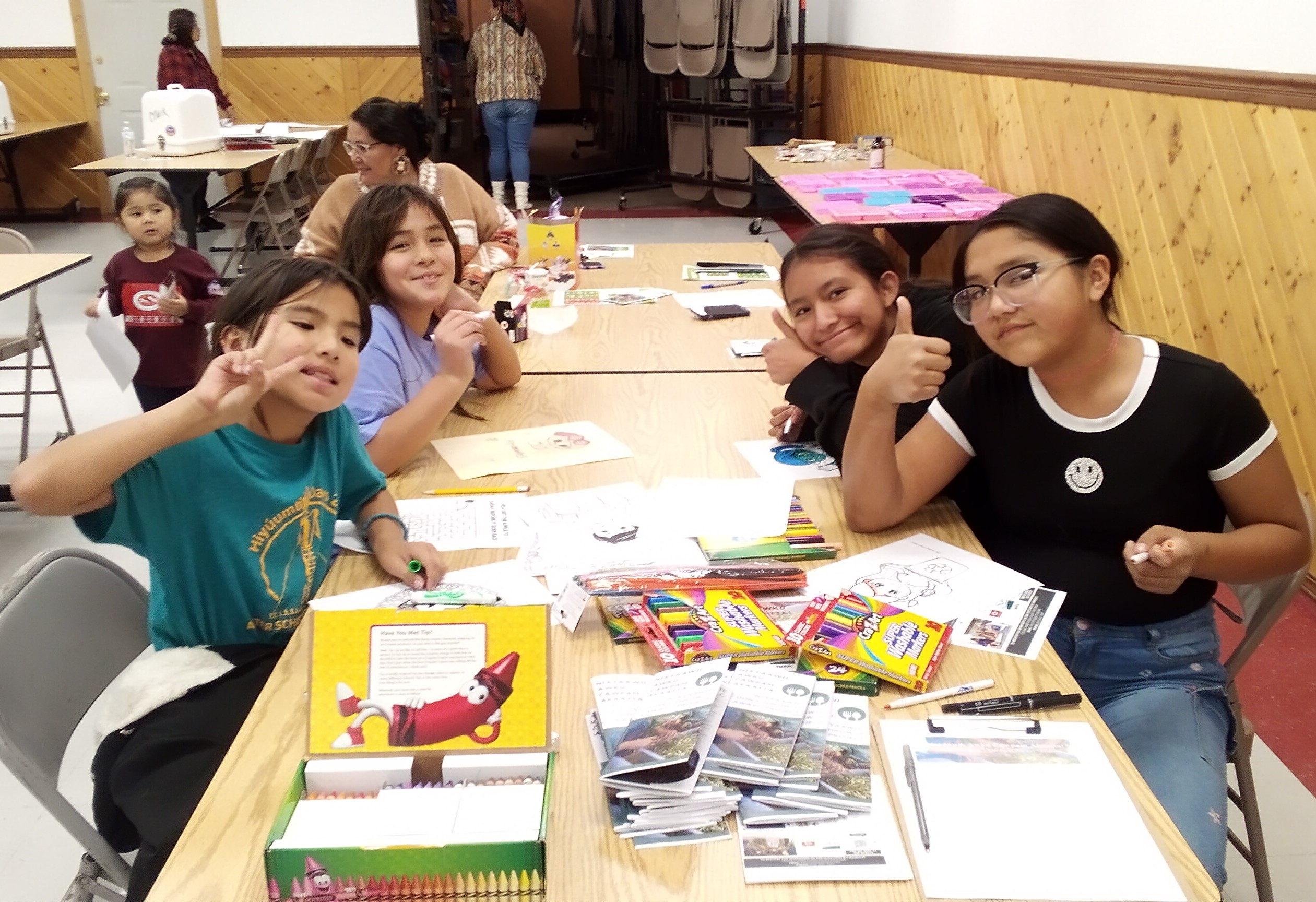
Tribal youth have been excited to be included in the planning and implementation of this project, as our young people are the ones who will be our leaders soon. Thanks to everyone who has been part of our activities and to our volunteers with the project!
Abalone Shell Earring Workshop - Nov 16 2024
As our first formal project event, we hosted an abalone shell earring workshop for our Tribal community to learn about the project and what food waste is while crafting! This event featured informational posters and light refreshments, and we conducted our first food waste collection data point, thanks to everyone who made it possible. Thank you to Biowaste Technology and their Amazon Change X grant for sponsoring the abalone shell earring materials!
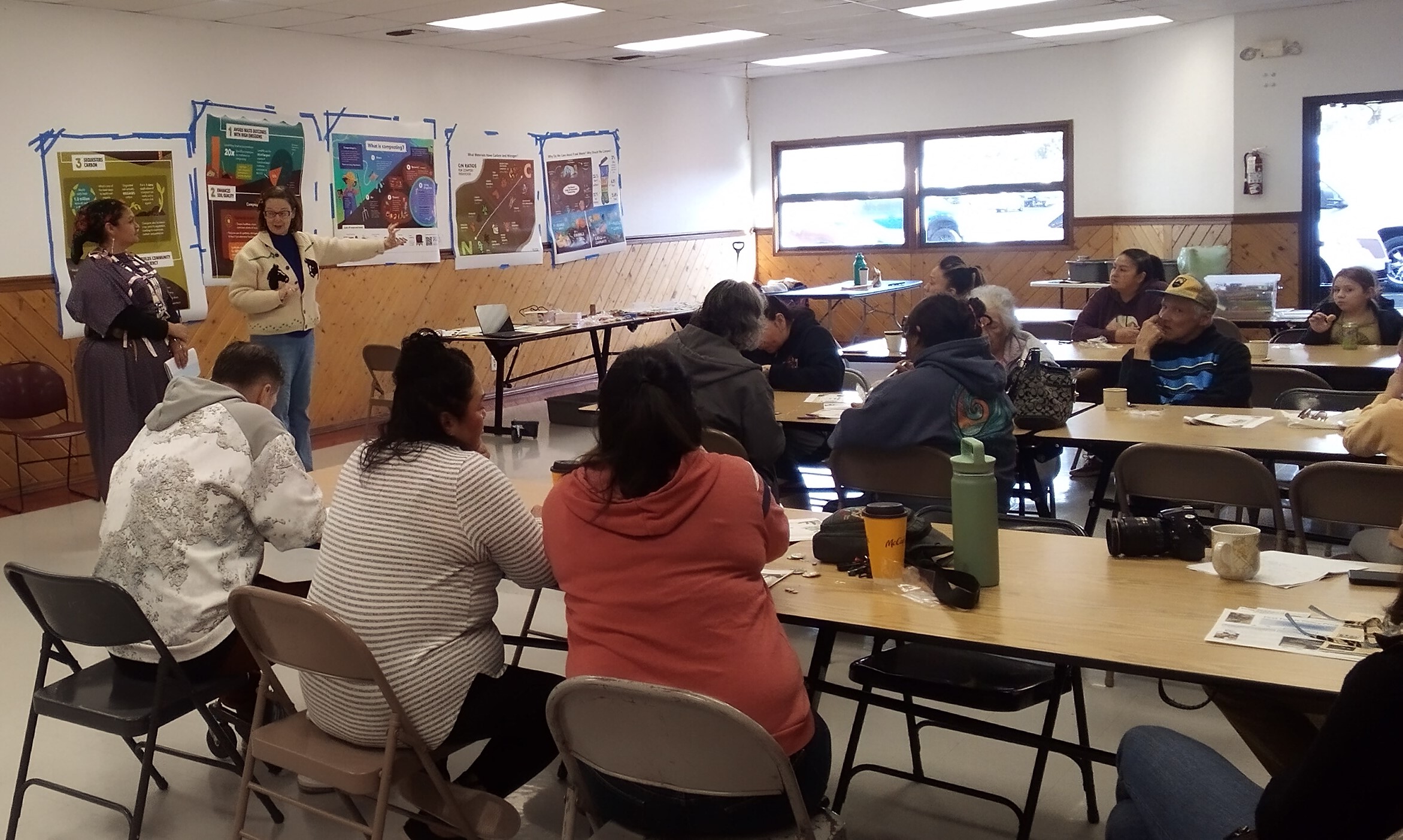
Biowaste Technology’s DeArcie Abraham and OSU Master Gardener Valerie Conner share knowledge with attendees of the Nov 16th Abalone Earring Workshop (2024).
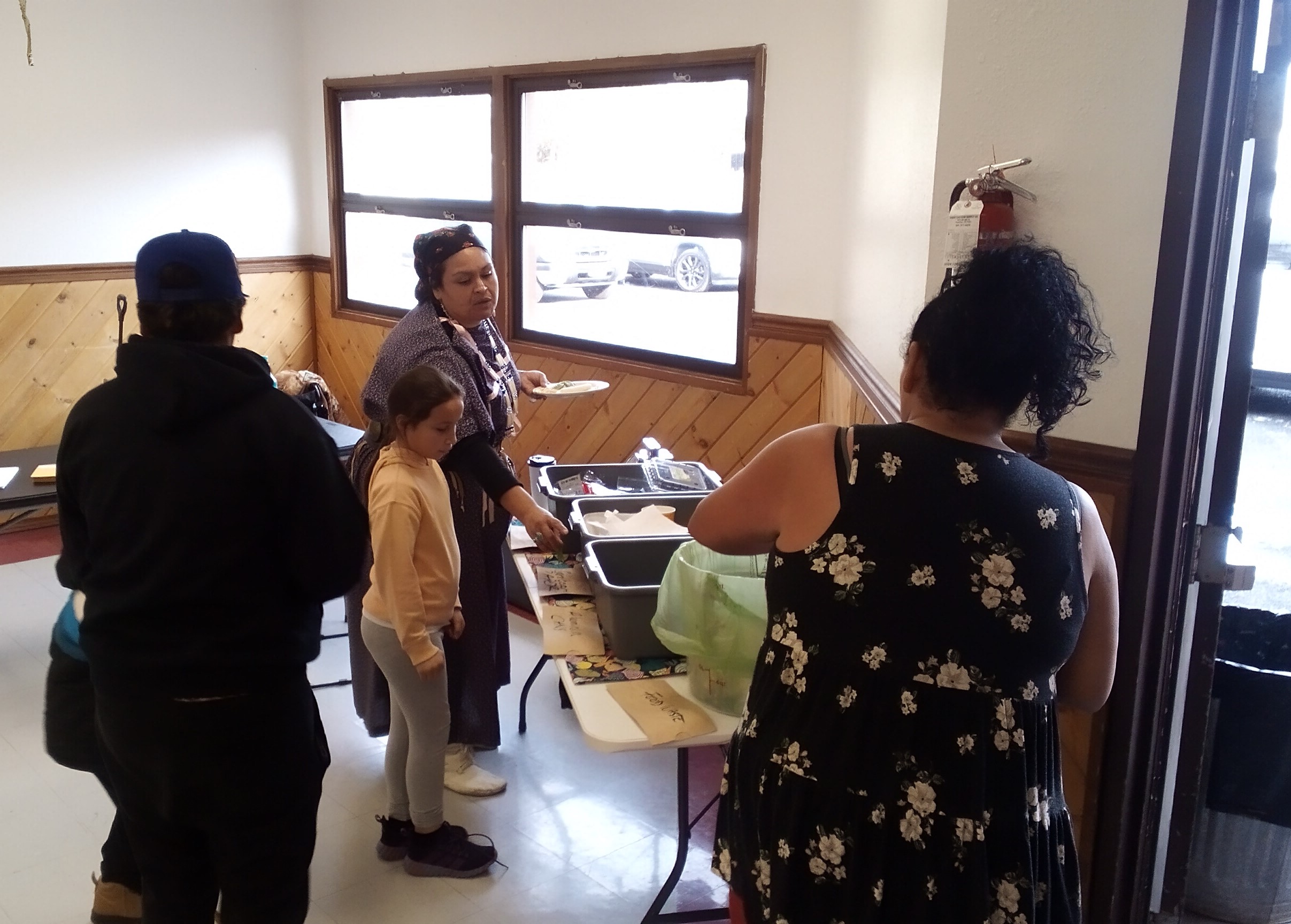
Biowaste Technology’s DeArcie Abraham explains the waste categorization system to a young participant in the event to demonstrate how we can separate the things we throw away.
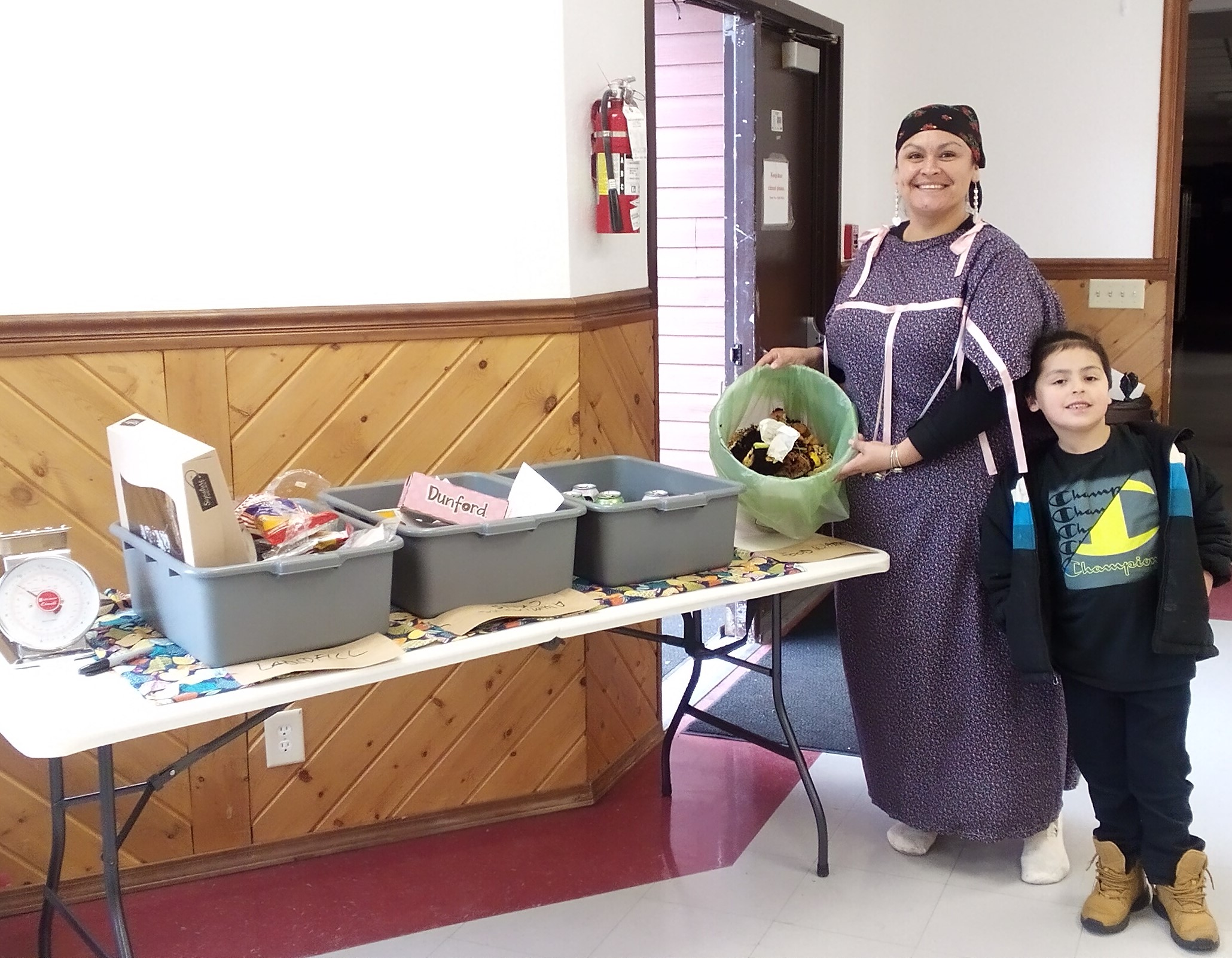
DeArcie Abraham of Biowaste Technology and her son Messiah show off the first food waste collected as a data point for the project event! (Nov 16 2024)
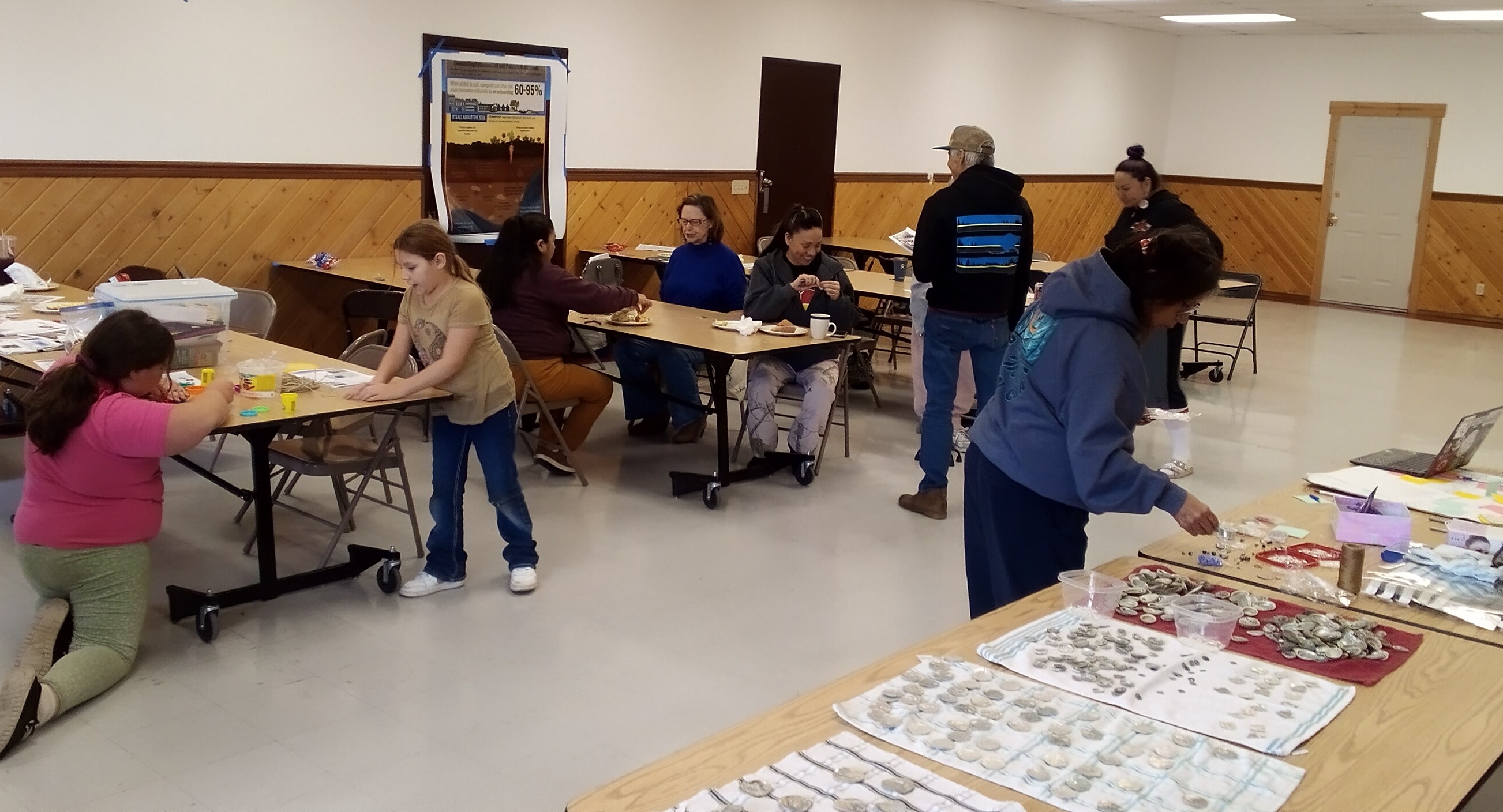
Participants in the Nov 16th Abalone Earring Workshop laugh as they get their earring materials and get seated before the start of the event (2024).
Tribal Contractor
CTUIR is working with Biowaste Technology, a local start up owned and operated by DeArcie Abraham, a CTUIR Tribal member and Nixyaawii community member. DeArcie is currently a student at Blue Mountain Community College working towards her Agricultural Production degree, and manages her Tribal start up which provides technical and consulting services around biological material management, primarily from food and agricultural production. Her many passions include composting to create a fertilizing soil conditioner, vermiculture (composting with worms), and anaerobic digestion (composting without oxygen), which is why her start up was formerly called Red Worm Composting LLC.
Biowaste Technology has been working within the community on food waste and composting services for some time prior to the development of this project. DeArcie has built strong connections with CTUIR’s Family Engagement Program, with the Dept of Child and Family Services (DCFS). Working with Family Engagement, DeArcie has been collecting some of the food waste that is generated as part of the activities hosted by the program, and using them to build her own modest composting operation at home, and uses its products in the community orchard she is establishing at Nixyaawii’s Wetland Park. She is also a recipient of an Amazon Web Services grant award to develop this orchard.
Our project is designed to support and expand the great work Biowaste Technology is already doing by funding capacity dedicated to this effort. DeArcie will be working with this project for its full duration (June 2024 to June 2026) and will be working with First Foods Policy Program to engage the Nixyaawii Community in food waste and materials management events and activities. Thank you DeArcie and Biowaste Technology!
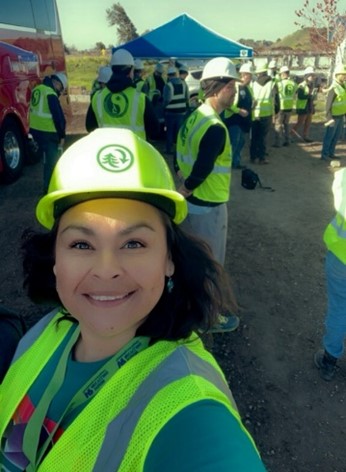
: DeArcie takes a selfie during her time at the U.S. Composting Council training in Sonoma County, California (May 2024).
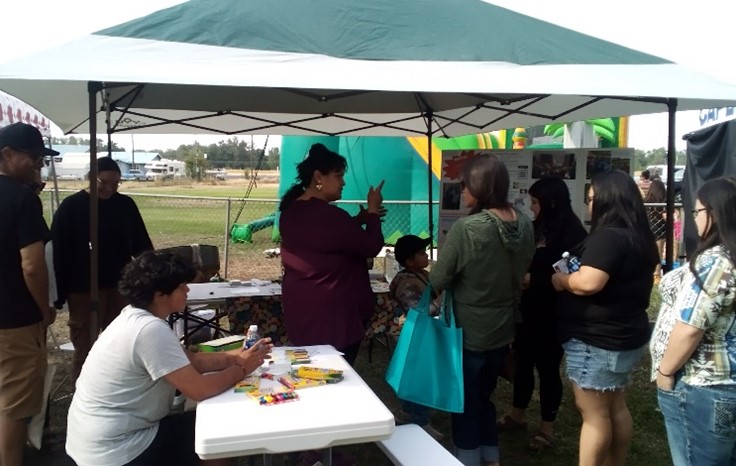
Attendees at the 2024 CTUIR Community Picnic talk with DeArcie about food waste and participate in survey questions about food waste knowledge and behaviors.
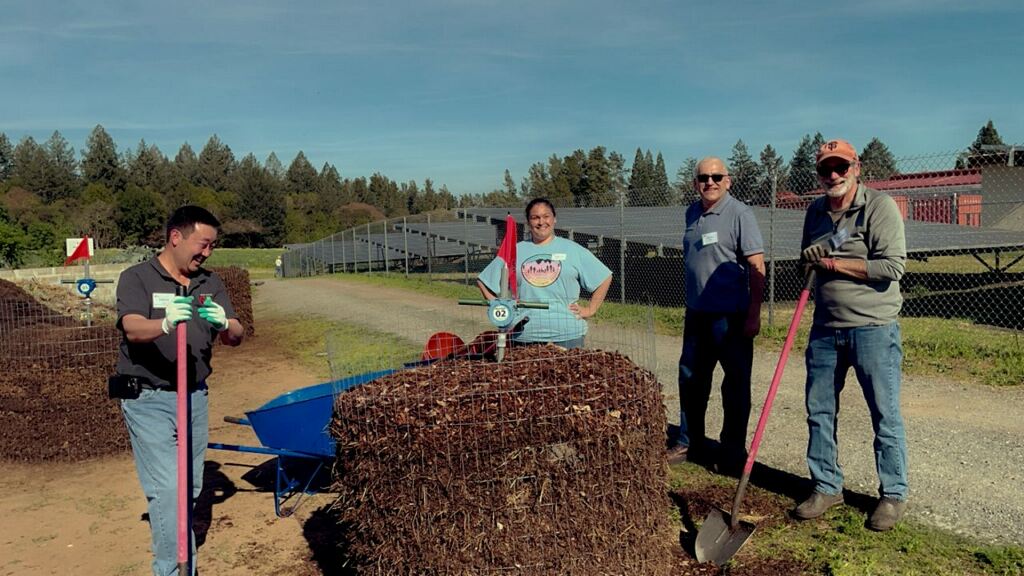
Tribal entrepreneur DeArcie Abraham (center) grins while among her fellow trainees at the U.S. Composting Council training in Sonoma County, California (May 2024).
Biowaste Technology has been working with the Tribal community for many years, and collaborated with First Foods Policy Program on this presentation as part of the Climate Resilience Listening Sessions on Oct 5th and 6th 2023.
Government & Community
CTUIR is a federally recognized Tribe with a 176,000 acre Umatilla Indian Reservation and a population of over 3,000 people who reside there. Thus the Tribal government provides much of the community its government services directly and has jurisdiction over the lands on the Umatilla Indian Reservation. Around 450 people comprise the Tribal government staff, with roughly half of these employees also being Tribal members or descendants. Many of the non-Tribal staff are also actively involved in the local and Tribal community. Thus CTUIR government staff are also integrally part of the Tribal community, and many participate dedicatedly with Nixyaawii community activities.
First Foods Policy Program (FFPP) is within CTUIR’s Dept of Natural Resources (DNR), and works with programs within and outside of DNR to implement collaborative projects that address First Foods and climate adaptation. Subsequent to the publication and adoption of the CTUIR Climate Adaptation Plan (CAP), FFPP began working with staff and community on independent projects identified in the CTUIR CAP to expand the Tribe’s existing climate adaptation initiatives.
FFPP is excited to work with Biowaste Technology on this project, and is providing financial match to the USDA funding for this project through FFPP staff time dedicated to the project. FFPP will be integrally involved in this project through its duration (June 2024- May 2026), and we are grateful to FFPP and DNR staff who are involved in making this project happen!
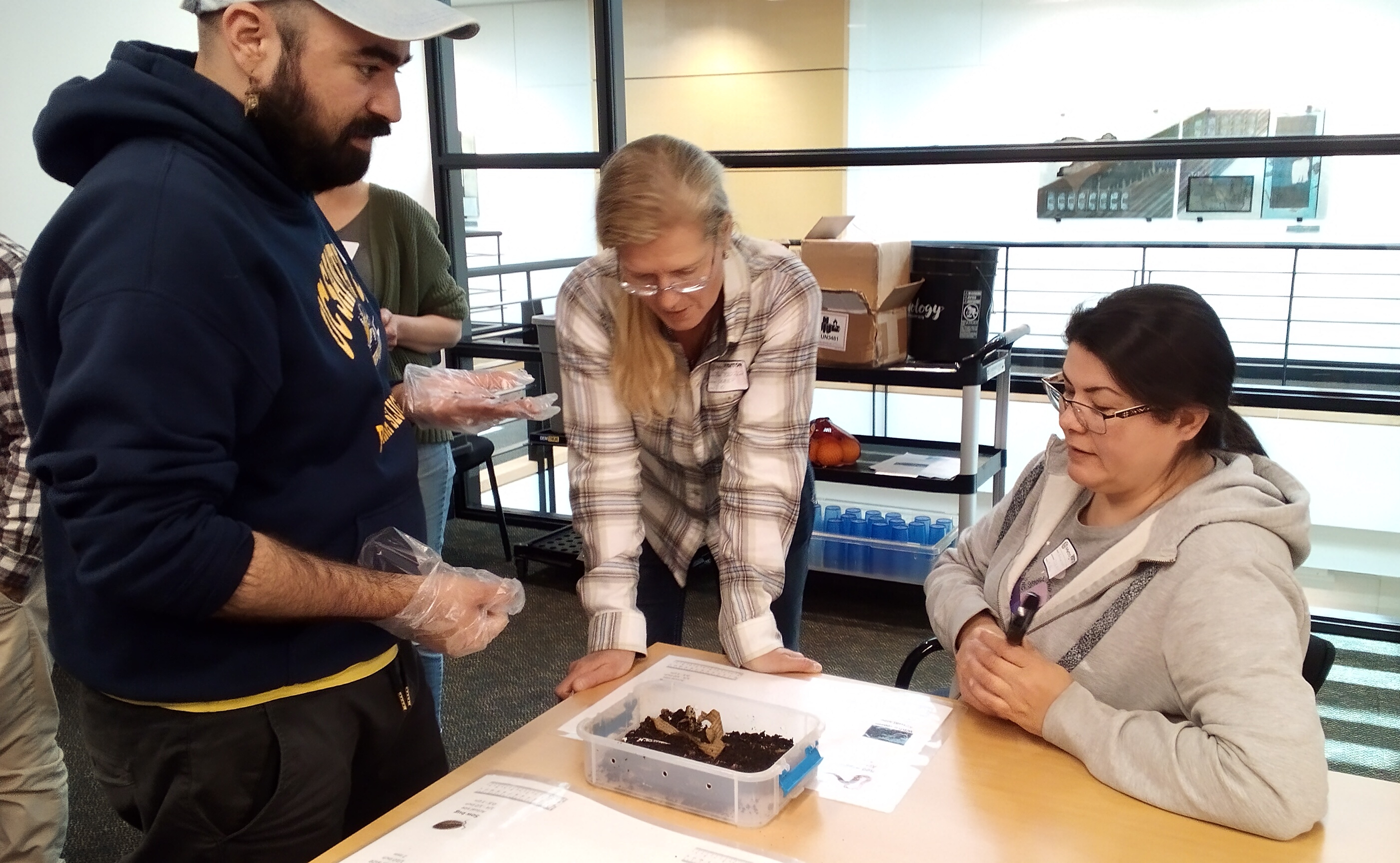
: First Foods Policy Program interim manager Althea Huesties-Wolf (right) considers a vermicomposting activity designed for K12 students as part of the Portland Metro and Oregon Natural Resource Education Program (ONREP)’s “Garbology” training course for educators.
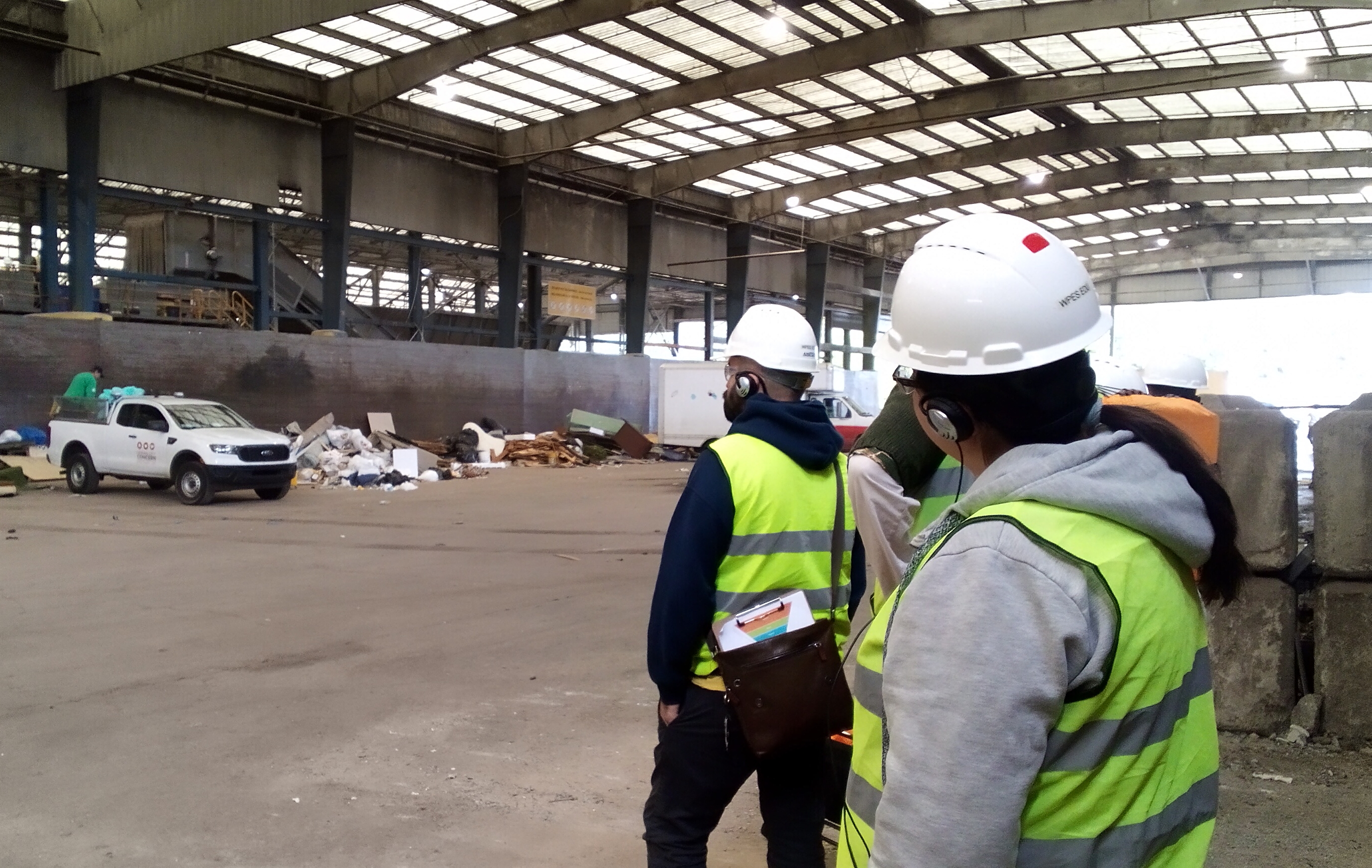
First Foods Policy Program interim manager Althea Huesties-Wolf (right) tours the City of Portland’s Waste Transfer Station as part of the Portland Metro and Oregon Natural Resource Education Program (ONREP)’s “Garbology” training course for educators.
K12 and College
Capacity isn’t only found in government services, but in community volunteers and families as well. Project activities also aim to increase capacity by providing skills and decision-making based education to local and Tribal families. FFPP collaborates with local schools on educational activites, including student waste audits. We are actively looking for local K12 schools and colleges who are interested in hosting materials management educational opportunities with our project!
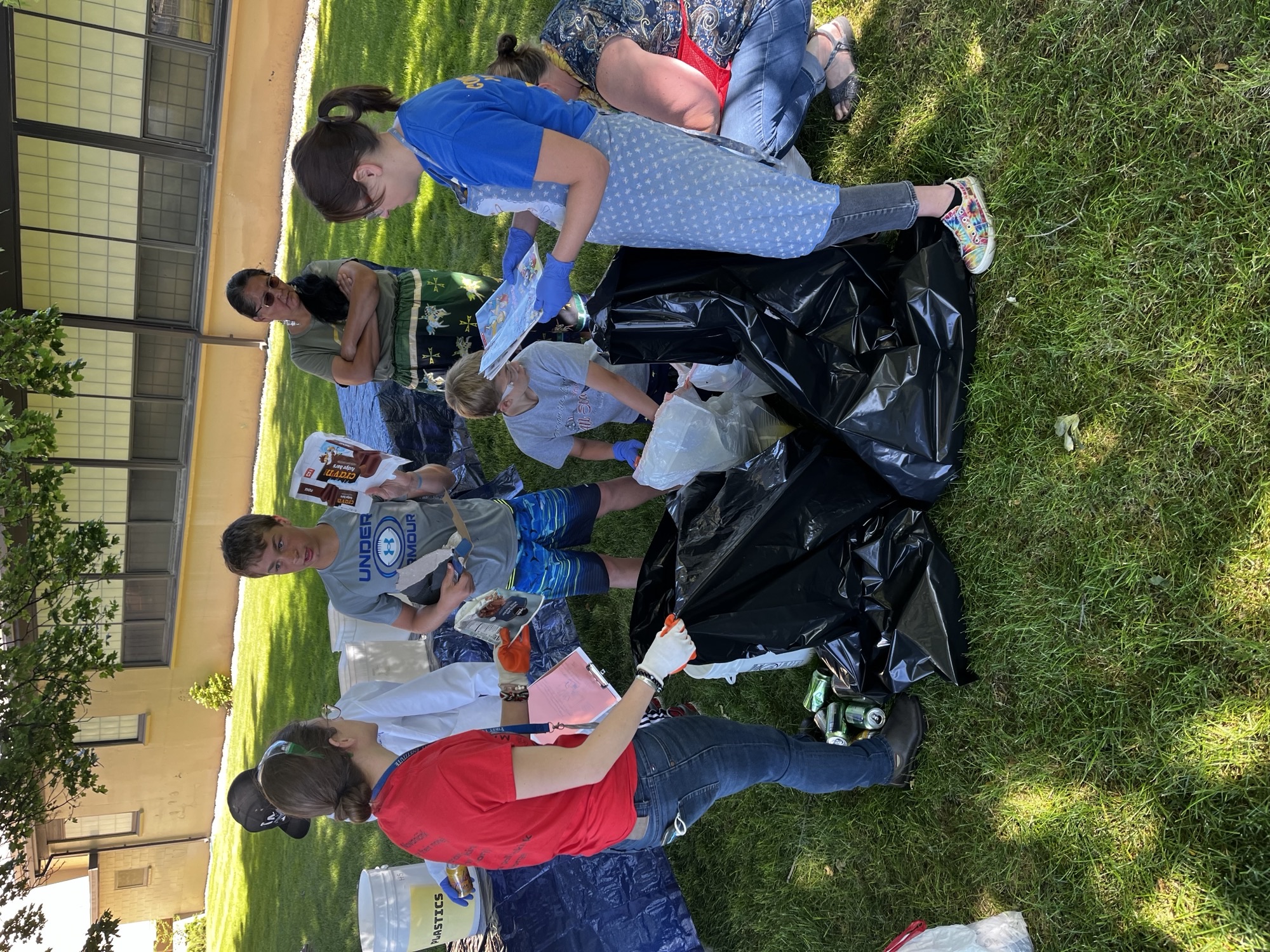
Students with the Pilot Rock 8th & 9th grade summer school class discuss which of the items in the project activity trash bags belongs in which sorted categories as part of a waste audit activity.
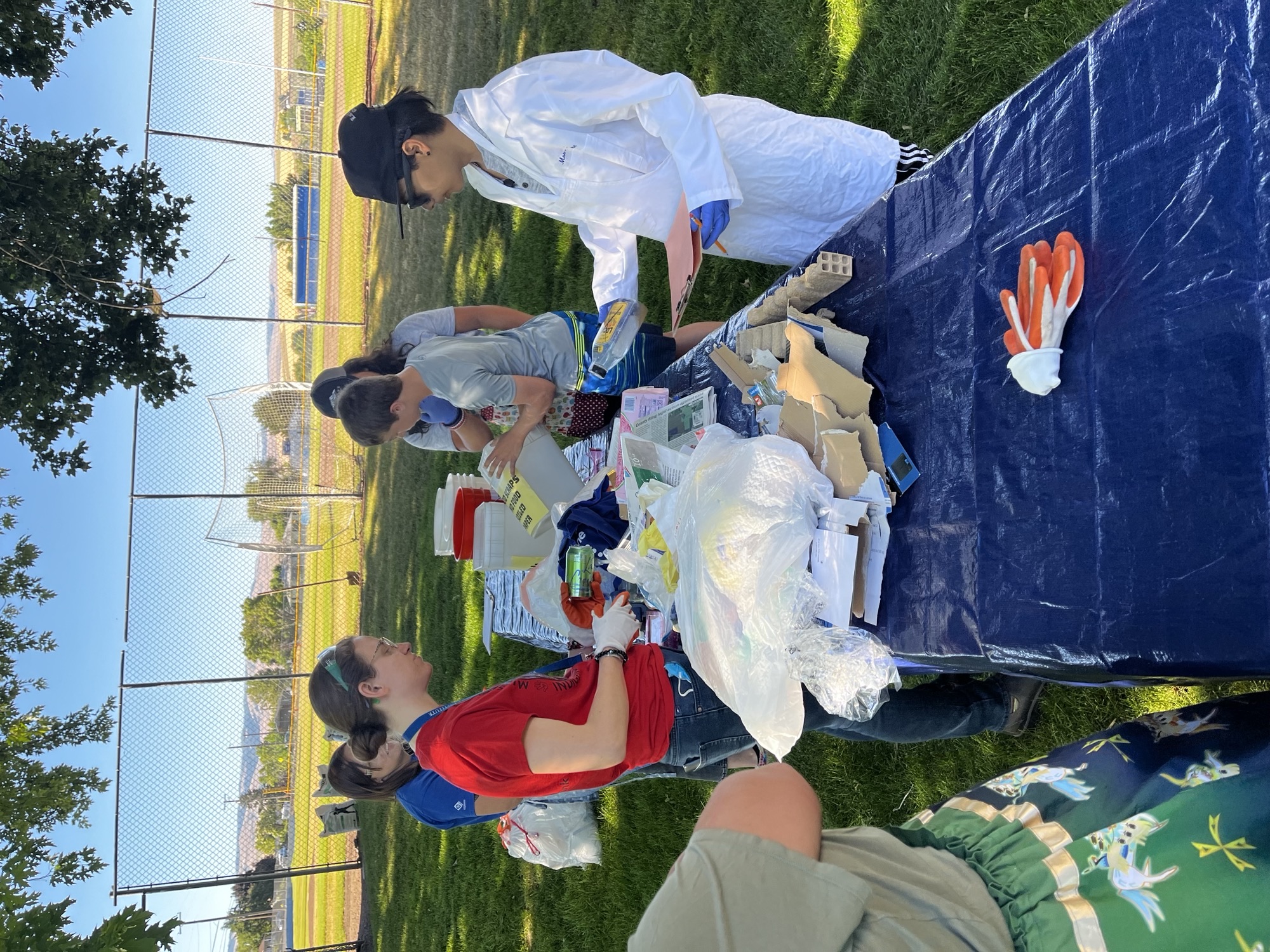
Students with the Pilot Rock 8th & 9th grade summer school class discuss which of the items in the project activity trash bags belongs in which sorted categories as part of a waste audit activity. Staff from CTUIR’s First Foods Policy Program and Cultural Resource Protection Program (CRPP) provide guidance to students as they sort trash.
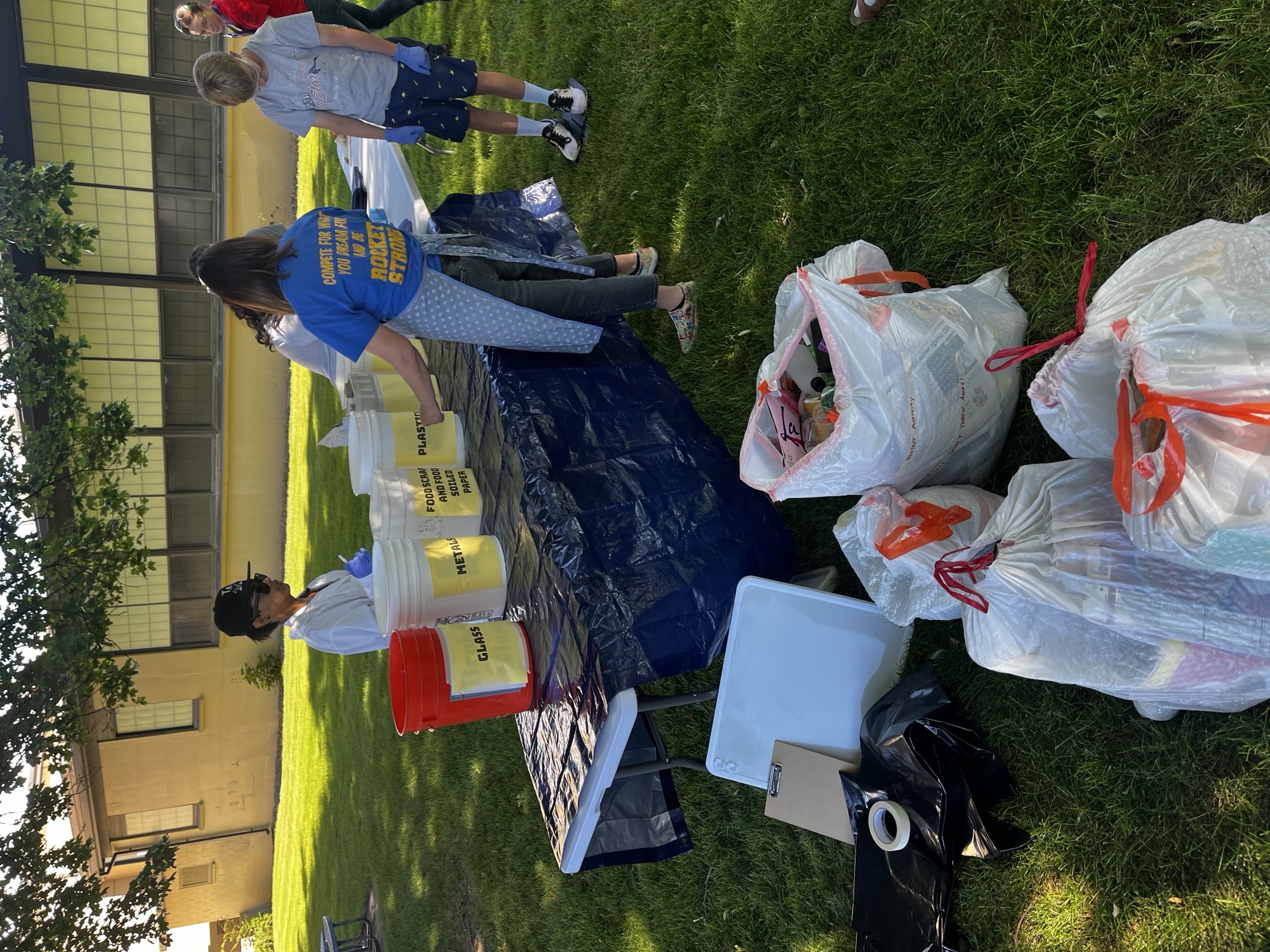
Pilot Rock 8th & 9th grade summer school class set up buckets for each waste category as part of a waste audit activity (July 2024).
FFPP is also fortunate to have a fantastic Tribal youth Climate Change Intern Ermia Butler assisting with this project, and has been developing educational materials for use with outreach. Ermia is currently a Washington State University student studying Environmental Science and Sociology, and plans to use her education to help protect First Foods against climate impacts. As part of this project, Ermia has been part of K12 waste audit activities, reasearched and developed outreach posters (see below) and engaged the Tribal community with food waste survey questions during outreach events. She works remotely with First Foods Policy Program during her school semesters, and hopes to graduate this academic year and enter a Masters Program with WSU in 2025.
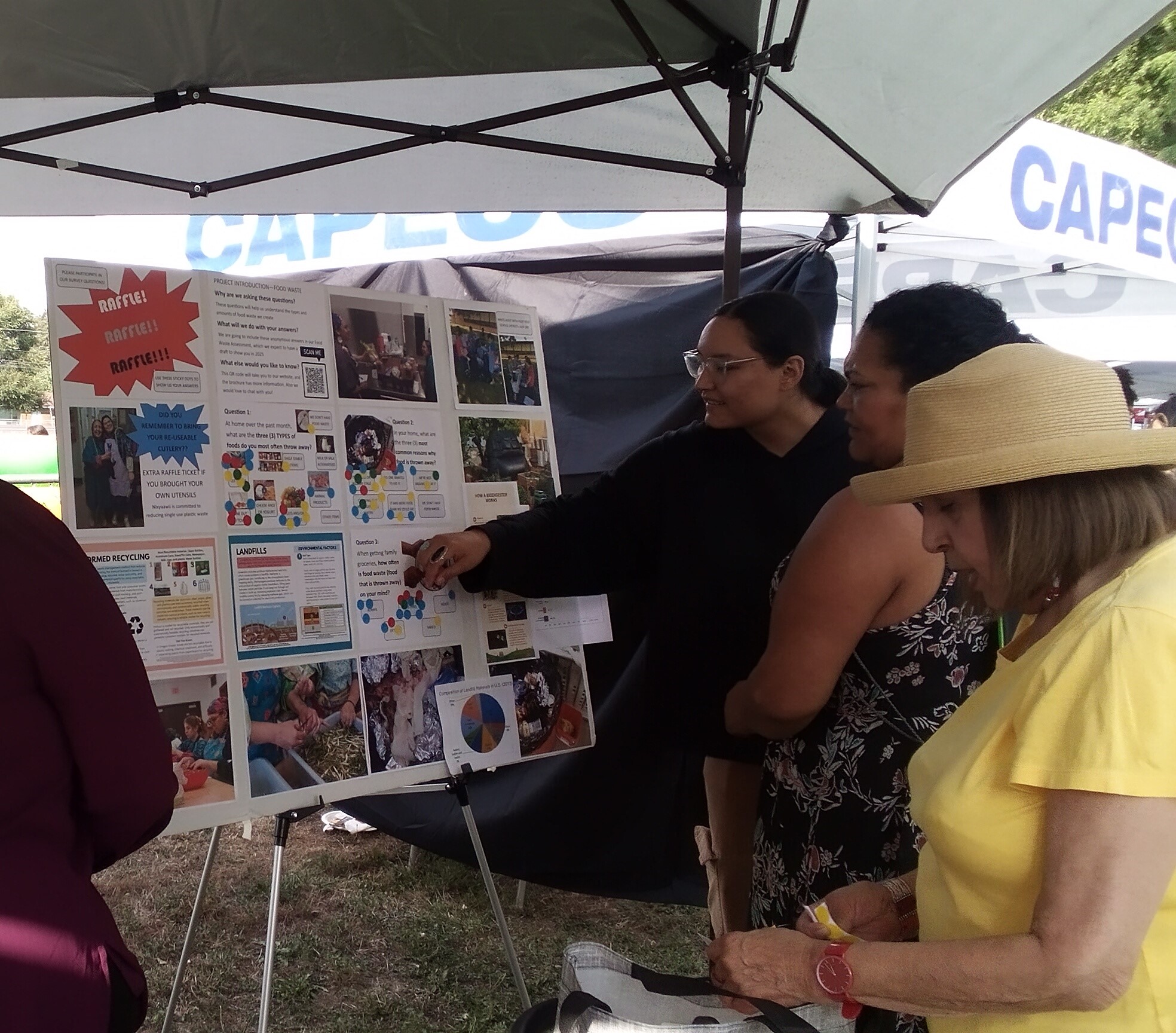
FFPP Climate Change Intern Ermia Butler (center) chats with Community Picnic attendees as they participate in survey questions about food waste understanding and behavior (Aug 2024).
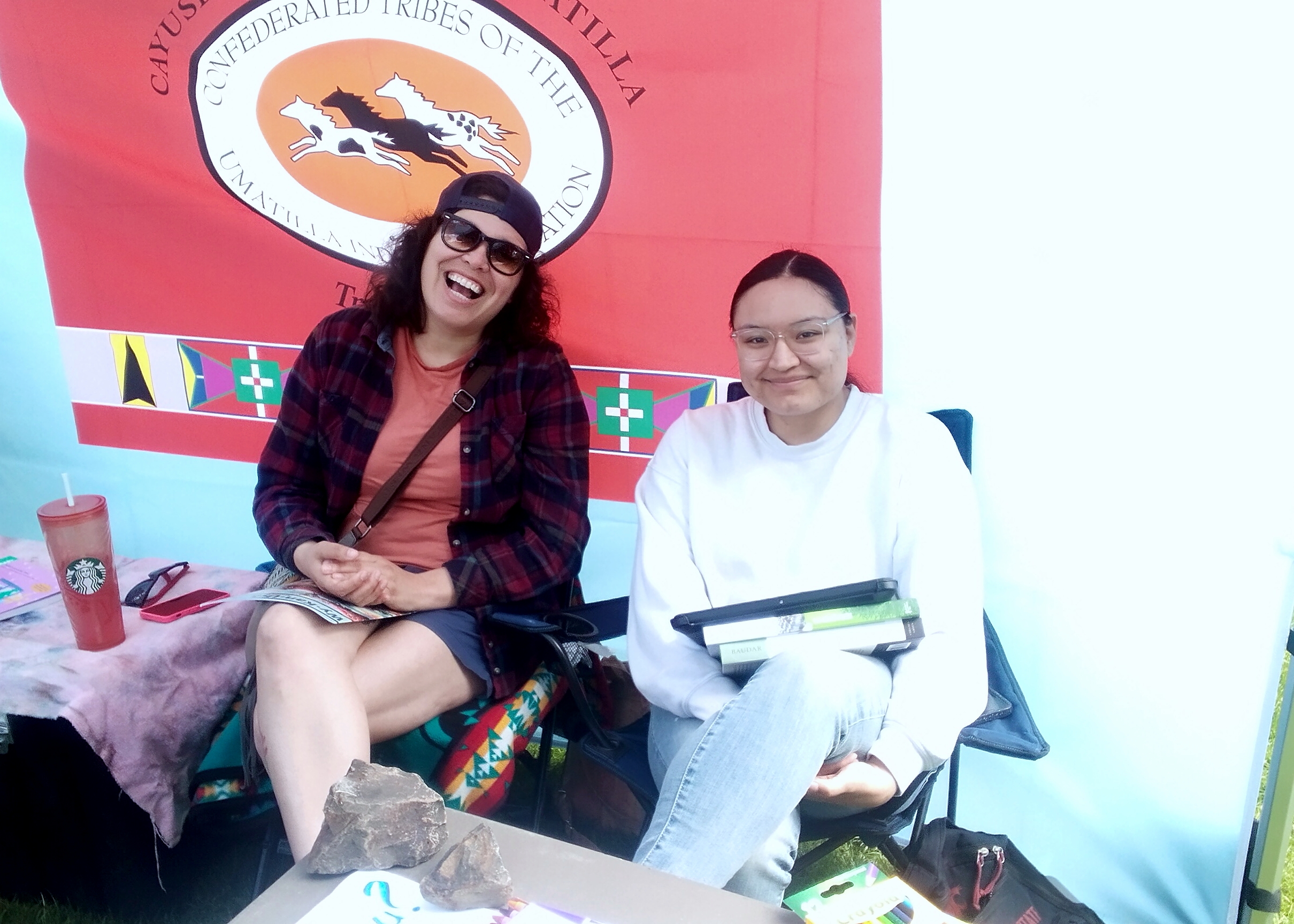
Ermia (right) and Water Resources Program staff Lyndsi Lewis have a good day of outreach at the Return to the River Festival at the Walla Walla Community College (May 2024).
Collaborating with Local Practicioners
Our project also seeks to learn from those in our community who are already doing this work on a large scale. Pendleton Sanitary Service Inc. (PSSI) has been an amazing partner for CTUIR’s Tribal Environmental Recovery Facility (TERF), which provides materials management services to the Umatilla Indian Reservation, and with our project. PSSI is generous with their knowledge and has provided our project team with tours of their composting operation, which takes in food waste from select locations in Umatilla County. We are grateful to PSSI for their participation with our project!
As part of CTUIR’s Climate Resilience Listening Sessions in Oct 2023, PSSI hosted FFPP staff and Biowaste Technology on a tour of their composting operation on a day when they were receiving food waste from three locations in Umatilla County. This is video of the tour as edited by FFPP staff.
Education and Practices
Asking our community to change their current behaviors can take a lot of energy from everyone. Diverting materials from landfills requires knowledge of what can be diverted and where to send it, as well as additional labor in physically sorting one waste stream from another. If our community is better informed on appropriate materials management and have the assistance and incentive to change, we are more likely to overcome obstacles. Community education comes in the form of providing accessible information, as well as conducting waste audit activities and creating engaging ways of decision-making when it comes to our food and materials choices.
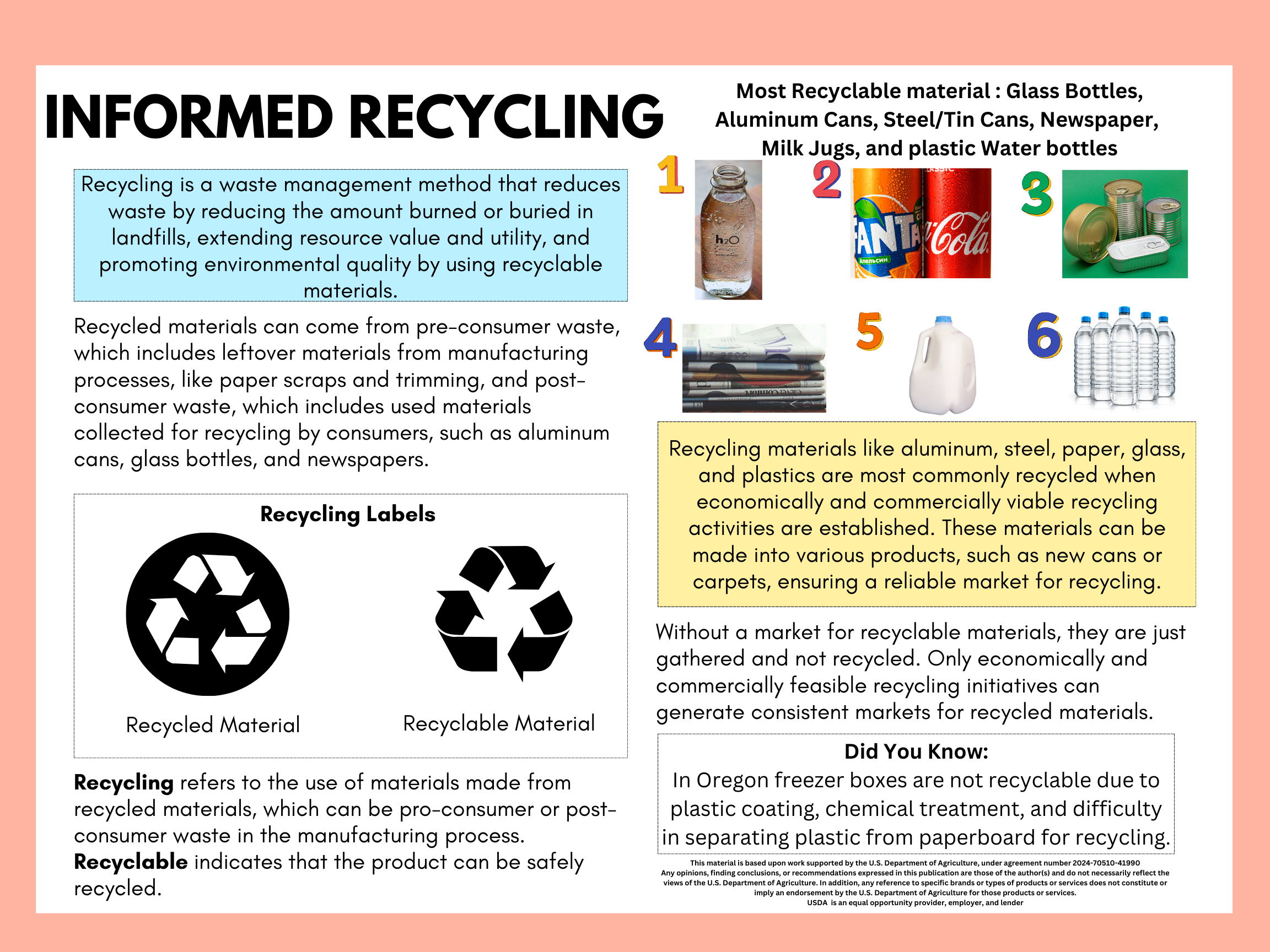
An infographic developed by FFPP Climate Change Intern Ermia Butler as educational materials produced by the project. This infographic is designed to provide information on types of materials that can be recycled, with an aim to inform family food purchases based on packaging material.
This material is based upon work supported by the U.S. Department of Agriculture, under agreement number 2024-70510-41990.
Any opinions, findings, conclusions, or recommendations expressed in this publication are those of the author(s) and do not necessarily reflect the views of the U.S. Department of Agriculture. In addition, any reference to specific brands or types of products or services does not constitute or imply an endorsement by the U.S. Department of Agriculture for those products or services.
USDA is an equal opportunity provider, employer, and lender.
Webpage updated: Jan 18 2025

